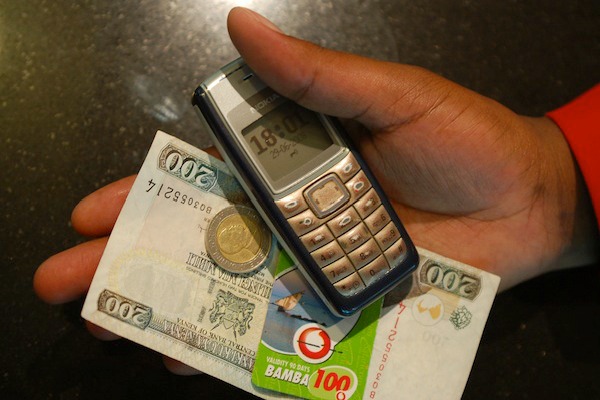Leading The Way in Africa′s Mobile Money Race
If one were to paint a picture of the Kenya that most of the world is familiar with, it would likely include the wildlife landscapes like the Maasai Mara National Reserve, where you’re guaranteed to see some of the “Big Five,” including lions, leopards, and elephants. Add to that the vast highland regions where most of the country’s tea leaves are grown—enough to ship more than 440 million pounds to 53 destinations across the globe, says the country’s Tea Board. That’s just in the first half of this year, making Kenya the world’s leading exporter of black tea.
But there’s much more brewing in the East African country. In recent years, it has become a hub for technological innovation on the continent and is home to one of the most successful of Africa’s mobile money markets. While in the United States you could still be posting your monthly rental check, Kenyans are paying everything from school fees to electricity bills via their mobile phones. It’s largely thanks to M-Pesa, a domestic mobile-based money transfer service owned by the country’s largest network operator, Safaricom. A month after launching in March 2007, they had less than 20,000 users. By November that year, it had grown to 1 million. Today it’s close to 15 million.
“About 40 percent of all payments in Kenya passes through M-Pesa” says Gregg Marshall, Global Head of Sales and Business Development for Western Union’s (WU) Mobile Transaction Services. A global leader in electronic money transfers and payments, Western Union has more than 26,000 agent locations across the African continent and in April last year partnered with Safaricom to offer mobile money transfer services to Kenyans living abroad. “Africa is very important, probably the most important region globally. We’ve put a big focus on connecting to mobile wallets starting with M-Pesa,” he said.
Western Union partnered with other local well-established carriers too, most recently with MTN in Uganda. It opens up the opportunity to tap into a large market that, though growing, is still largely “unserved and unbanked” in many parts. The continent’s most populous country, Nigeria, is perhaps a key example.
Is Nigeria Next?

Despite having the highest penetration of mobile phones in Africa, usage of the device for banking transactions in Nigeria remains low. The Central Bank of Nigeria (CNB) admits that mobile payments are “yet to achieve mainstream status,” but it is hoping its “Cashless Lagos” project will be a key “game changer for financial inclusion”. Introduced as a pilot in the beginning of this year, the initiative encourages electronic-based transactions to reduce the amount of cash circulating in the economy. Currently only in effect in the capital, there are plans for a national rollout come January 1 2013.
Cashless Society
The idea of a cashless society is leaps away from a less-cash one, but is the former a realistic possibility in Africa in the near future? It depends on the timeline, says Matt Oppenheimer, co-founder and CEO of Remitly, a digital service that allows people to send money from the United States directly to mobile phones in the Philippines. The Southeast Asian island was an early adopter of digitizing monetary transactions for mobile devices. Having spent time in Kenya as the Head of Mobile and Internet Banking for Barclays Bank, Oppenheimer says it has been exciting to see how mobile transactions have transformed the domestic market. “At some point we’ll be much less reliant on cash, but the vast majority of transactions are still done via physical exchange of money,” he says.
A recent study funded by the Bill & Melinda Gates Foundation that looked into the financial behaviour of adults in sub-Saharan Africa found that 31 percent of people still use informal methods, like sending money with a taxi driver to transport it to the next village, in order to “move money across the country”. The report describes Nigeria as having “the best growth potential”, as close to 35 million consumers exclusively use informal cash payment options. “Cash has been with us for a long time”, says Western Union’s Gregg Marshall. “It’s part of our DNA. You can feel it, see it, smell it, and count it.”
It doesn’t take away what mobile money has done for Kenya, though, and what it’s starting to do in other parts of the continent, too. What’s key is that it is providing access—access to inclusion, and access that allows people in rural areas to participate in the same transactions as those who live in cities.
